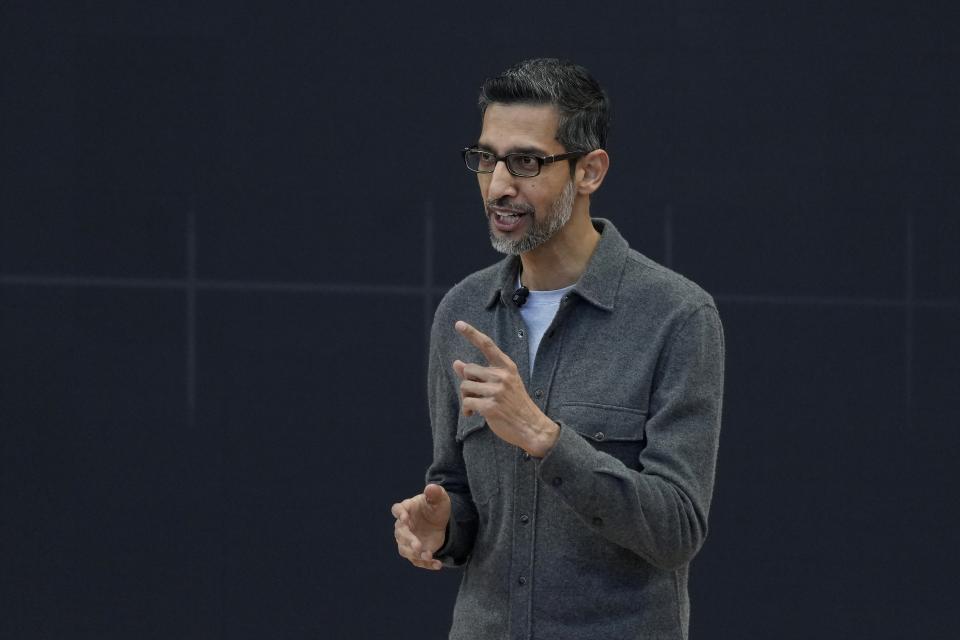Alphabet’s (GOOG,GOOGL) biggest-ever acquisition could face US pushback no matter who wins the White House this November.
The reported $23 billion bid to buy fast-growing cloud cybersecurity firm Wiz is the kind that is almost sure to attract scrutiny from Washington competition watchdogs, along with inevitable delays.
A US regulatory review could stall a tie up into next year, making it possible that a new administration could be tasked with evaluating its competitive risks.
That doesn’t necessarily mean Alphabet, which is already fighting antitrust challenges on other fronts, would be free of a yet another legal fight.
“The current administration looks at vertical issues more heavily than has historically been the case,” Colin Kass, a partner with Proskauer and co-chair of the firm’s antitrust group, told Yahoo Finance.
“But even the prior administration, under Trump, did look at vertical issues even more so than earlier administrations.”
The Biden administration has tried to rein in what it views as anticompetitive behavior across a number of industries, from healthcare to groceries to tech.
But a second Trump administration may not be much friendlier, especially with the giants of Silicon Valley.
When Trump was president last decade, his administration launched antitrust investigations into Apple (AAPL), Amazon (AMZN), Meta (META) and Alphabet’s Google. His administration also filed a lawsuit against Google targeting its dominance as a search engine.
That search engine case, which the Biden administration decided to continue, wrapped up earlier this year and a decision from a judge is expected soon.
Trump suggested in an interview with Bloomberg Tuesday that major tech companies do need some reigning in to limit hazards to children, though he added that he didn’t want to go after them violently because the approach could destroy them.
And Trump’s new vice-presidential candidate, Sen. J.D. Vance, has called for the breakup up of Google while also expressing admiration for Lina Khan, the Federal Trade Commission boss who has led the scrutiny of a number of merger attempts in the tech world.
“I guess I look at Lina Khan as one of the few people in the Biden administration that I think is doing a pretty good job,” Vance said in February.
A former FTC official who spoke with Yahoo Finance and asked to remain anonymous agreed an Alphabet-Wiz deal would spark a review, no matter who is in the White House.
But a Trump-led DOJ or FTC, the former official said, would more likely favor concessions from Alphabet over litigation if a review raised competition concerns.
Regulators could even probe for evidence to learn if Google is already engaged in the cloud cybersecurity market in hopes of challenging the company on grounds that the deal poses a potential, rather than existing, competition threat.
The former FTC official said that evidence might not support the theory, but such an investigation could be worthwhile for regulators to explore because they are interested in further developing the law on potential threats.
That too could take up substantial time.
If a deal to buy Wiz does in fact move forward, either the DOJ or FTC would lead any ensuing investigation.
At preliminary stages, merger and acquisition reviews typically span 30 days, with room for extensions. If officials decide to move beyond preliminary review to what’s known as a second request, the additional investigation can take six to 18 months.
Only then, once a second request is completed, could a legal challenge to the transaction happen.
“So we’re talking at a minimum of probably eight months before there’s an actual challenge and more likely, a year or more before there’s an actual challenge,” Kass said.
The antitrust experts said competition concerns could include fears that an acquisition would give Alphabet’s Google an opportunity to disadvantage rivals, or diminish competition in a downstream market.
New York University professor Lawrence White said an Alphabet-Wiz merger could also receive scrutiny from regulators abroad.
That would pose additional complications for the companies since the EU keeps turning up the heat on US tech giants.
Just last month European regulators hit Microsoft (MSFT) with an antitrust charge one day after the same regulatory body charged Apple with violating European Union competition law.
Alexis Keenan is a legal reporter for Yahoo Finance. Follow Alexis on Twitter @alexiskweed.
Click here for the latest technology news that will impact the stock market
Read the latest financial and business news from Yahoo Finance










